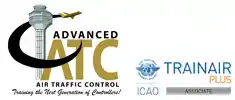
Is the Tuition Worth It for FAA Air Traffic Control employment? What You Need to Know About Advanced ATC’s Program.
When investing in a career in air traffic control, understanding the return on investment is essential—especially with tuition costs like $60,000. So, how does Advanced ATC justify this cost, and what makes the program stand out for students aiming for FAA employment? Let’s break it down.
1. How does the program’s value justify the $60,000 tuition, particularly for students aiming for a career in Air Traffic Control with the FAA?
The $60,000 tuition covers an all-inclusive, one-year training program. That price includes all required books, materials, and access to simulators—without any additional lab fees. One major differentiator is that Advanced ATC students graduate with a Control Tower Operator (CTO) certification with a Facility Rating, not just a CTI (Collegiate Training Initiative) designation.
While CTI graduates still need further training and certification to qualify for air traffic control jobs, Advanced ATC’s graduates are immediately qualified to work in certain contract towers. Additionally, the CTO qualification makes them eligible for direct FAA hire after just 52 weeks of experience.
Given the industry median salary of $129,750 (2021 data) for air traffic controllers and the relatively low projected cost of comparable programs ($10,000–$35,000 for 60 credits. A 2 or 4 year CTI degree requires students to complete four years of English, three years of math at Algebra 1 level or higher, two years of natural or physical science (including one year of lab science if available), one additional year in English, math, or science, and two years in social science, world language, comparative religion, or philosophy.), Advanced ATC’s fast-track, all-in-one model offers significant value saving time and strictly training students in Air Traffic Control, especially for students who want to begin working quickly and move toward FAA employment before the age of 35.
2. What specific advantages does the CTO certification with a Facility Rating offer in FAA hiring compared to CTI program graduates?
Graduating with a CTO certification and a Facility Rating opens the door to immediate employment at contract towers. After gaining 52 weeks of experience, these professionals can apply for direct hire positions with the FAA.
While CTI programs may offer academic credentials, they do not qualify graduates for air traffic control positions. In contrast, Advanced ATC’s program qualifies graduates for real-world tower operations on day one. Many former students are currently working for the FAA, and the CTO certification provides a direct, experience-based path to federal positions.
3. Can you share recent data on graduate job placement rates, particularly with the FAA versus contract towers, and the average time to secure FAA employment?
While we have 100s of graduates working in control towers around the nation, we don’t track the exact job placement of every graduate, we can confirm that all students who complete the program are eligible for immediate employment at many contract towers. After gaining the required 52 weeks of experience, they can apply as a direct hire with the FAA if they choose to.
Some graduates opt to remain in contract towers longer to build seniority and union rank within NATCA (National Air Traffic Controllers Association), which influences shift assignments and vacation preferences. Ultimately, FAA employment is a personal choice many students pursue—but the experience gained through our program ensures they’re ready when that time comes.
4. Are there scholarships, financial aid options beyond Sallie Mae, or partnerships to offset costs for students?
Yes. While Sallie Mae is a common financing route, we strongly encourage students to apply for scholarships. We provide guidance on how to apply efficiently for multiple scholarships, often without needing to write separate essays.
Students can contact our team directly at 1-866-938-0398 to receive tips and support in securing funding, making the program more accessible and affordable.
5. How does Advanced ATC support graduates in navigating the FAA hiring process, especially given the non-CTI status?
One of the biggest misconceptions is that a CTI designation is necessary to get hired by the FAA—it’s not. In fact, many FAA-employed managers are former Advanced ATC graduates who do not have CTI or any other college degree.
What truly matters is the hands-on experience and FAA certification. Our program equips students with exactly that—making them FAA-ready after gaining one year of real-world tower experience. We continue to support graduates’ post-completion by offering advice and industry insights to help navigate the hiring process with confidence.
Conclusion
For aspiring air traffic controllers, Advanced ATC offers a direct and effective path to employment—with a curriculum tailored for real-world readiness, not just academic theory. While the $60,000 cost may seem steep initially, the value delivered with possessing a CTO, experience, and job eligibility makes it a compelling investment for those serious about their aviation careers.
Have more questions or want personalized advice? Call us at 1-866-938-0398— at Advanced ATC we’re happy to help.

